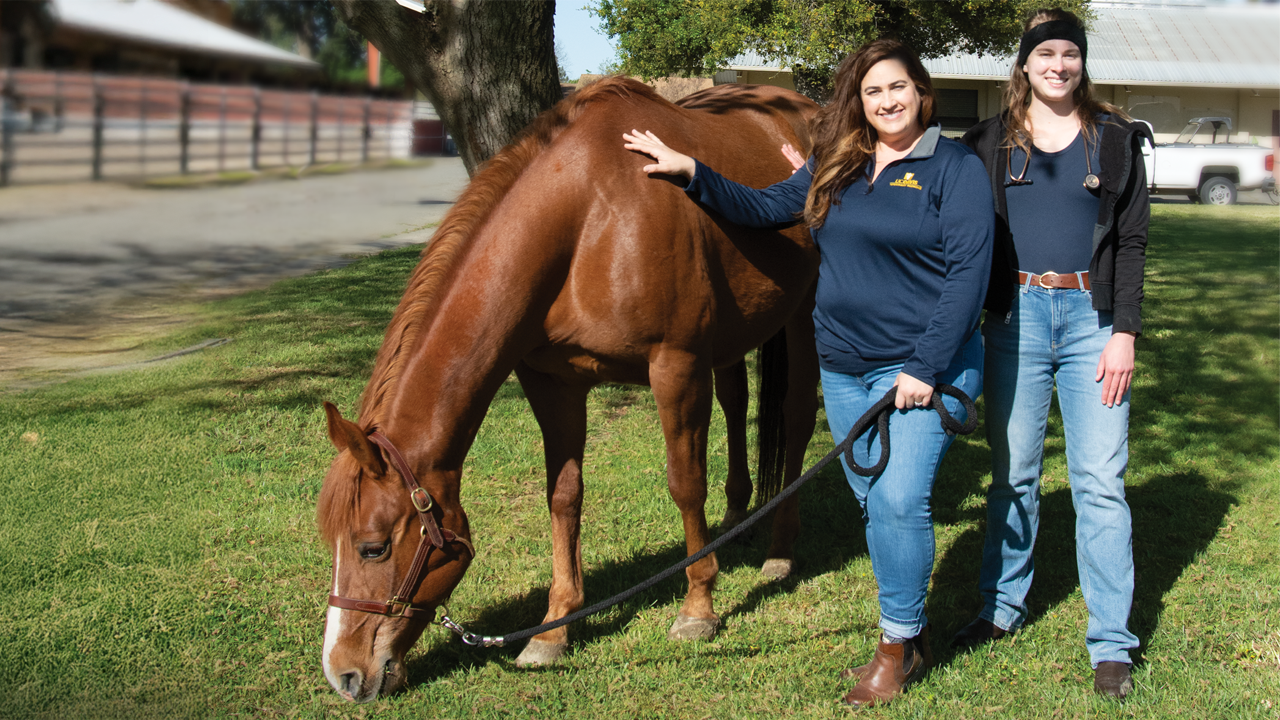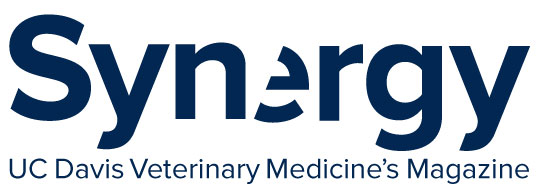
Giving Students a Leg Up
Dr. Tatiana Viau was born with the horse crazy gene. Though not scientifically recognized, this trait is commonly acknowledged in the equine community as an inherent affinity for horses that is as undeniable as it is stubborn.
It's no surprise that Viau initially wanted to pursue an equine track while in veterinary school at UC Davis. But she was discouraged from that route by people in the veterinary community, with warnings of work instability, financial hardship, and burnout.
“I was young—just 22 when I had to decide which track to pursue,” said Viau, who received her DVM in 2011. “I’d come this far to get into vet school, and I didn’t want to make the wrong decision and compromise my future, so I did what I thought was the “safe” thing and tracked small animal medicine. At that time, I also lacked the mentorship I needed for encouragement to follow what I was passionate about.”
Maybe it’s the horse gene, because although Viau formally tracked small animal medicine, she ultimately ended up in a career working with horses. In 2017, she began a position at the UC Davis Center for Equine Health (CEH) as its Animal Resource Manager. In this role, she oversees the health and management of the center’s more than 150 resident horses, and the center’s client horse programs. She also facilitates equine research, and teaches students and the public.
In her teaching role, Viau wants to ensure that other young people aren’t discouraged from a career in equine veterinary medicine due to misinformation or lack of confidence.
“What I’m doing now for students is a reflection of what I went through,” Viau said. “I needed someone successful, some years out from graduation, to hold my hand and say, hey, you CAN do this. I try my best to be that mentor, especially for young women. They don’t have to choose between having a family and a career they love.”
Viau has a lot of practical experience with this, raising two young children, ages one and three.
“Balance is something you always have to be working on throughout your career, but it’s possible. I’m proud to have students tell me that I’m an example that they can do it all.”
While working at the CEH, Viau has also begun a program for DVM students that are interested in learning more about horses. She has found that there are a lot of veterinary students who are interested in the idea of equine medicine, but don’t have the experience or confidence to feel like they can choose an equine track as they progress through the curriculum. Every year, Viau gets a handful of students through word of mouth who want to learn more about horses in a non-intimidating, informal setting outside the regular curriculum. They meet her at the CEH to go over clinical cases, health topics, and to learn about husbandry and handling.
“We’re facing a shortage of equine practitioners for many reasons, a big one being access,” Viau said. “A lot of people who grew up riding come from a very specific socioeconomic status. If a person didn’t grow up riding, it’s hard to break through the culture of the horse world. There’s a lot of terminology involved in horse handling and care—that can often feel daunting if you don’t speak the language.”
Viau considers herself fortunate to have ultimately landed in a place where she truly wanted to be in the first place.
“I want students to know that if your passion is working with wildlife, then pursue that path. Or it’s working as a zoo veterinarian, then follow that dream. Don’t let anyone deter you.”
